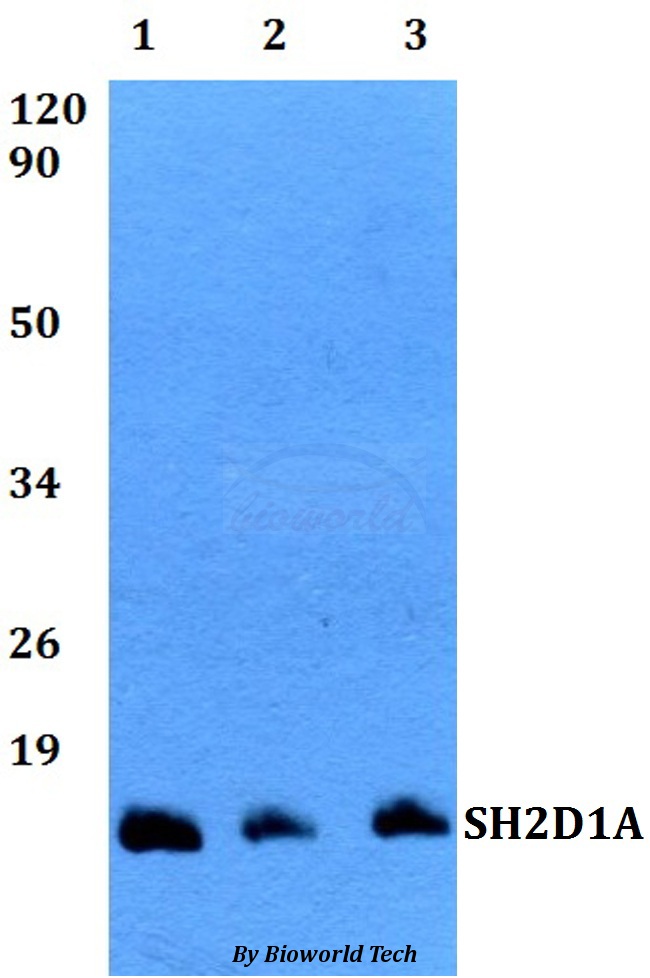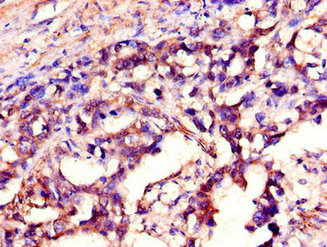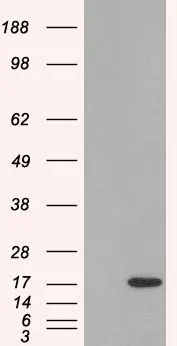
WB analysis of various sample lysates using GTX54727 SH2D1A antibody. Dilution : 1:1000 Loading : 25μg per lane
SH2D1A antibody
GTX54727
ApplicationsWestern Blot
Product group Antibodies
ReactivityHuman, Mouse
TargetSH2D1A
Overview
- SupplierGeneTex
- Product NameSH2D1A antibody
- Delivery Days Customer7
- Application Supplier NoteWB: 1:500 - 1:2000. *Optimal dilutions/concentrations should be determined by the researcher.Not tested in other applications.
- ApplicationsWestern Blot
- CertificationResearch Use Only
- ClonalityPolyclonal
- ConjugateUnconjugated
- Gene ID4068
- Target nameSH2D1A
- Target descriptionSH2 domain containing 1A
- Target synonymsDSHP, EBVS, IMD5, LYP, MTCP1, SAP, SAP/SH2D1A, XLP, XLPD, XLPD1, SH2 domain-containing protein 1A, Duncan disease SH2-protein, SLAM associated protein/SH2 domain protein 1A, SLAM-associated protein, T cell signal transduction molecule SAP, signaling lymphocyte activation molecule-associated protein, signaling lymphocytic activation molecule-associated protein
- HostRabbit
- IsotypeIgG
- Protein IDO60880
- Protein NameSH2 domain-containing protein 1A
- Scientific DescriptionThis gene encodes a protein that plays a major role in the bidirectional stimulation of T and B cells. This protein contains an SH2 domain and a short tail. It associates with the signaling lymphocyte-activation molecule, thereby acting as an inhibitor of this transmembrane protein by blocking the recruitment of the SH2-domain-containing signal-transduction molecule SHP-2 to its docking site. This protein can also bind to other related surface molecules that are expressed on activated T, B and NK cells, thereby modifying signal transduction pathways in these cells. Mutations in this gene cause lymphoproliferative syndrome X-linked type 1 or Duncan disease, a rare immunodeficiency characterized by extreme susceptibility to infection with Epstein-Barr virus, with symptoms including severe mononucleosis and malignant lymphoma. Multiple transcript variants encoding different isoforms have been found for this gene. [provided by RefSeq, Jul 2008]
- ReactivityHuman, Mouse
- Storage Instruction-20°C or -80°C,2°C to 8°C
- UNSPSC41116161









